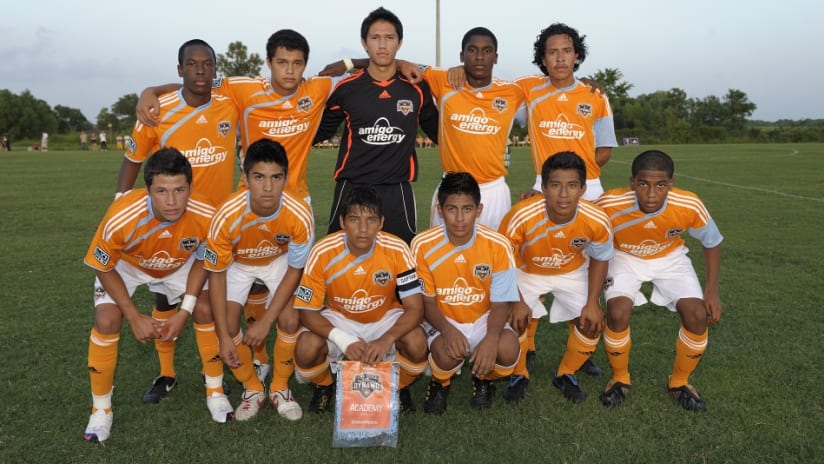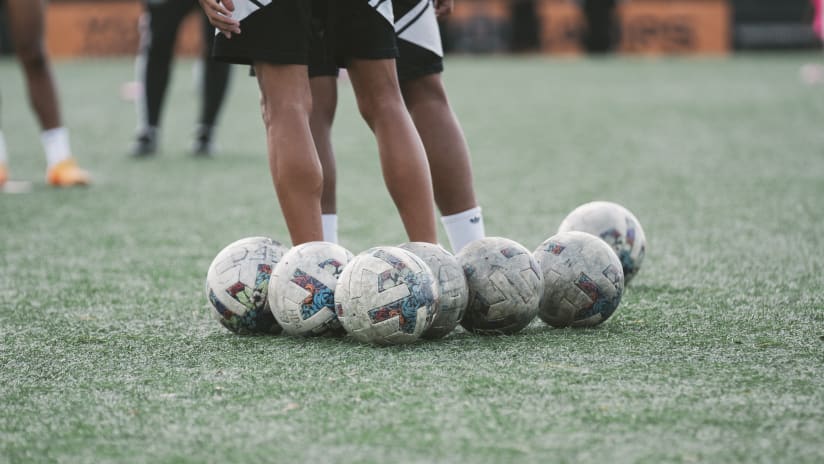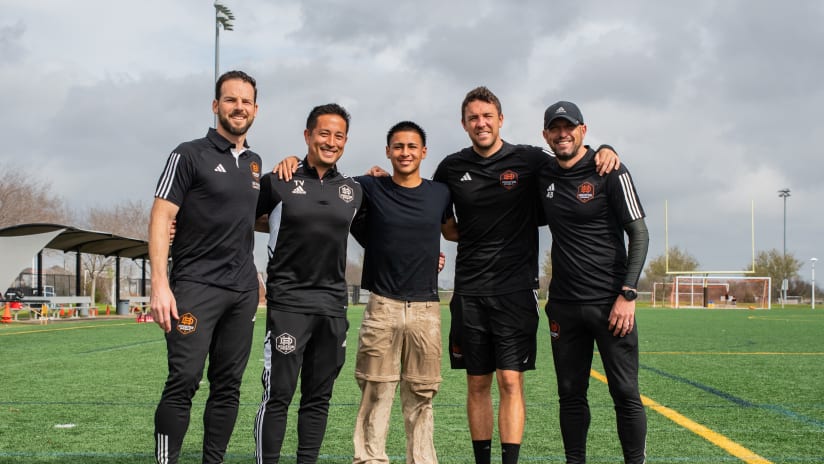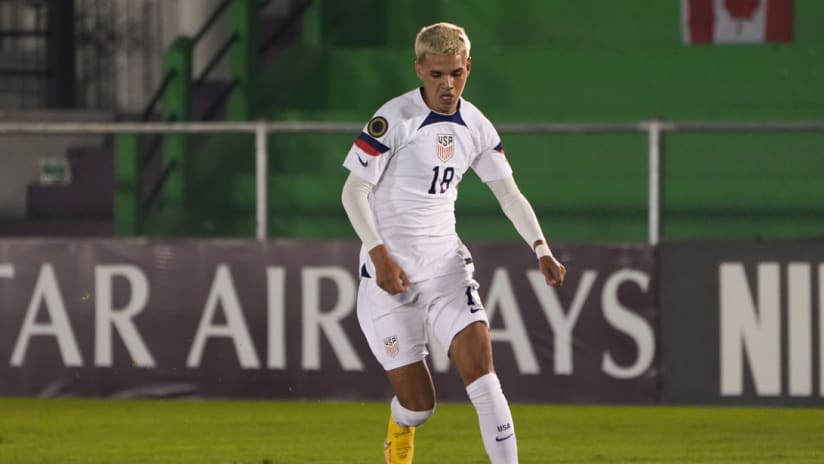It is not exactly the soccer version of NAFTA, but the Houston Dynamo hope they are starting a trend that will lead to increased movement of youth soccer players between the United States and Mexico.
Or, at least, between Houston and Jalisco, as the Dynamo Academy will be partnering with Cocula F.C. of the Mexican Tercera División to encourage player exchanges and, hopefully, create a pipeline of Guadalajara-area talent to Houston.
Try out for the Dynamo Academy with Dynamo Elite Camps
The Tercera División is actually fourth on the Mexican soccer ladder and consists of almost 250 youth teams split up into 15 groups. Cocula, located about 70 kilometers southwest of Guadalajara, is currently unbeaten (9-0-5) with a good chance of winning Group XII, ahead of the youth clubs from Primera División teams Chivas, Atlas, and Estudiantes Tecos. Dynamo Director of Youth Development James Clarkson said the idea of the partnership is to provide new opportunities to players in both countries and believes it will be more beneficial than other agreements between Mexican and American clubs at the first-team level.
“This is something that’s really done at the youth level with the goal of getting into the first team,” Clarkson said. “It’s not us being protective of our players and them protective of theirs and nobody getting anywhere; there’s a real passion from both sides to develop both organizations and give players opportunities. It’s a great fit for both of us. Once we get it going and people realize there is real credibility to it … the growth will be incredible.”
Cocula FC vice president Jorge Silva Terán was in Houston last week with several players from the Mexican club, and Clarkson and the Dynamo expect to return the visit in January. The expectation is that Cocula players who qualify for the Dynamo Academy’s age range (U-18) may spend time training and playing in Houston, hoping to get a chance at a professional contract. Meanwhile, Houston-area players of Mexican descent may have an opportunity to play in Mexico for a season to gain experience.
“We believe that if we expand our players’ horizons, both on the field or off it, by helping them go to school through scholarships, they will obviously be a lot better off,” Silva Terán said. “This partnership also presents us with the advantage of being able to bring in any Mexican-American players from the Dynamo Academy to play in the Mexican third division. James can send us young players to play in Mexico for about six months and come back playing a different and perhaps higher level of soccer.”
The club will be called Dynamo Cocula and will adopt Houston’s trademark orange uniforms. He believes this new partnership will benefit the club much more than past dealings with top-level clubs.
“Sometimes the first-division club you’re affiliated with comes in, takes your players, and doesn’t even thank you for supplying them with those players,” Silva Terán said. “Indios, for example, took 11 of our U-20 players last year. All we got in return from them were warm-up suits and training kits.”
Although the partnership has just begun and has yet to be
formalized, the first exchange has already taken place. With the Dynamo Academy
U-18s short of goalkeepers, Cocula goalkeeper Pedro Gutierrez Mora (pictured) registered
with U.S. Soccer, joined the team in Phoenix,
and has backstopped the U-18s to two wins.
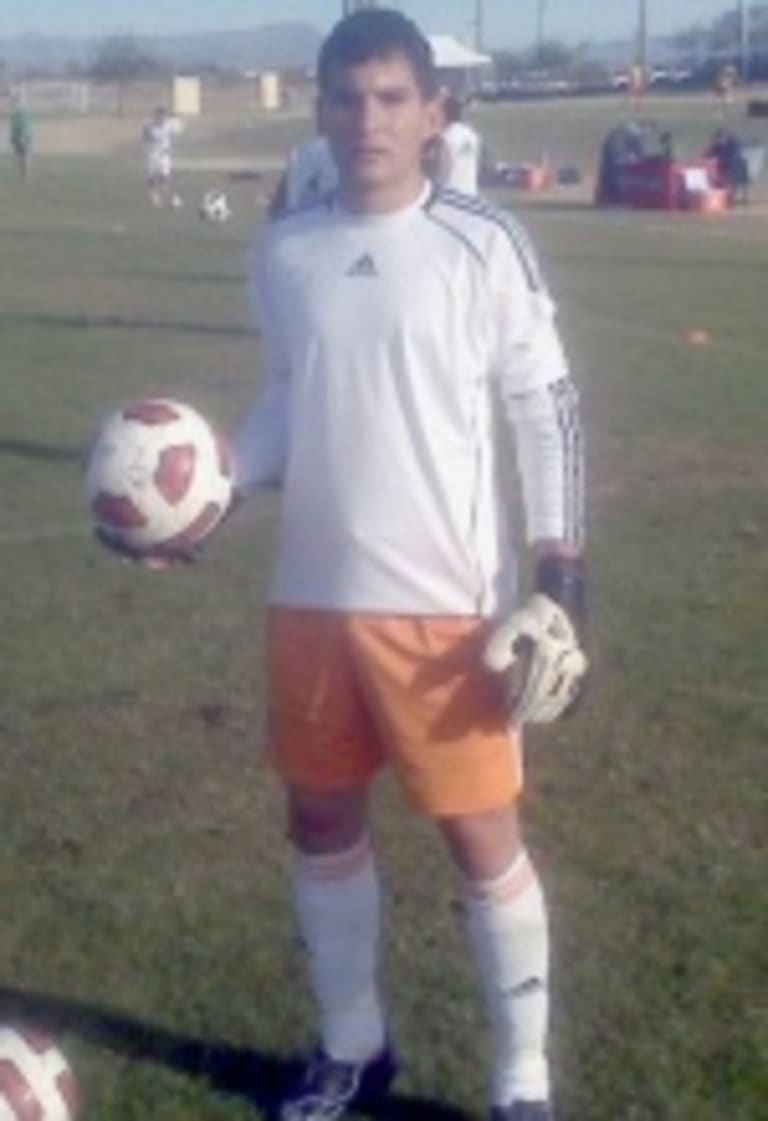
“He’s played well in goal for us so far,” Clarkson said. “He showed great communication and organization, and he was very comfortable with his feet.”
The venture into Mexico, which includes a tryout in Guadalajara Jan. 14-17, is just part of the Dynamo Academy’s increase in reach in 2010. Over the summer, youth programs in six locations throughout the South joined the Dynamo system, and Clarkson held a tryout in El Paso last month. The Dynamo South Texas Academy, meanwhile, continues to function as a strong partner in the Rio Grande Valley. Clarkson said the goal with Cocula will be to bring players to Houston shortly before they aspire to make the jump to the professional level.
“They’ll have to be older than 17, and then they can come into the Academy,” Clarkson said. “That’s the goal, and they would be classed as home-grown players and kept in the Academy system for at least a year. They would be eligible to train with the first team, play in reserve games, and hopefully make that step up to the first team … We’re obviously taking this seriously because we want to get the best players we can into the first team. We have to go further afield than the 125 miles that are set out for us by MLS.”
It is an agreement with long-term goals, but both Clarkson and Silva Terán believe it could be a new model for player development in North America.
“I think over time, once people see the opportunities that are there, it’s going to continue to grow,” Clarkson said. “We’re at the forefront of it, and we’re leading the way. I’m sure when people see the success of it, they’re going to jump on the bandwagon and start trying to do things, but hopefully by then we’ll be way ahead of things.”

